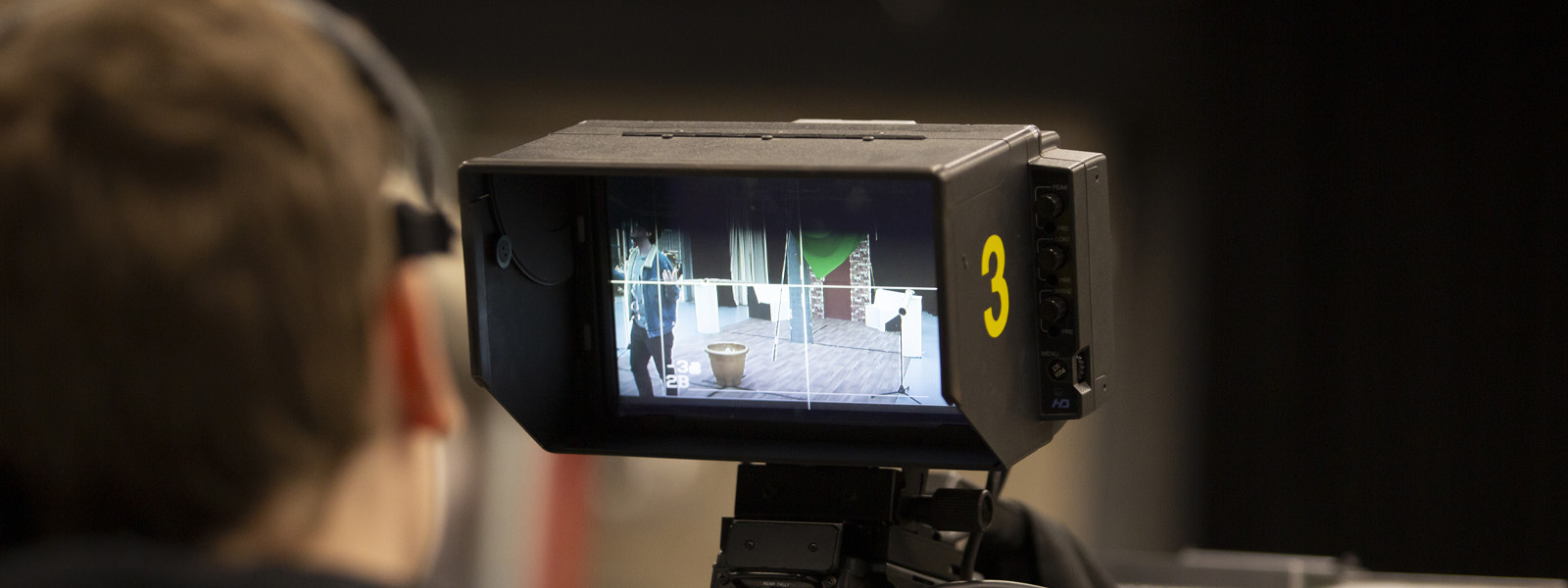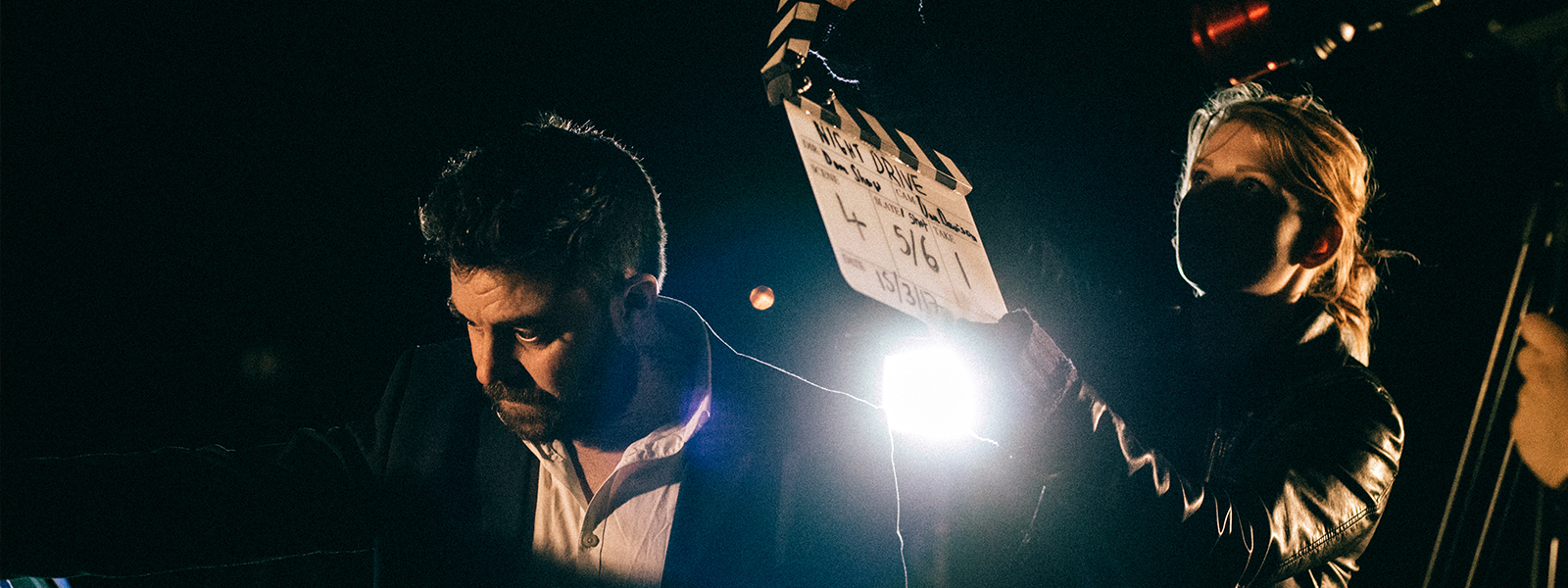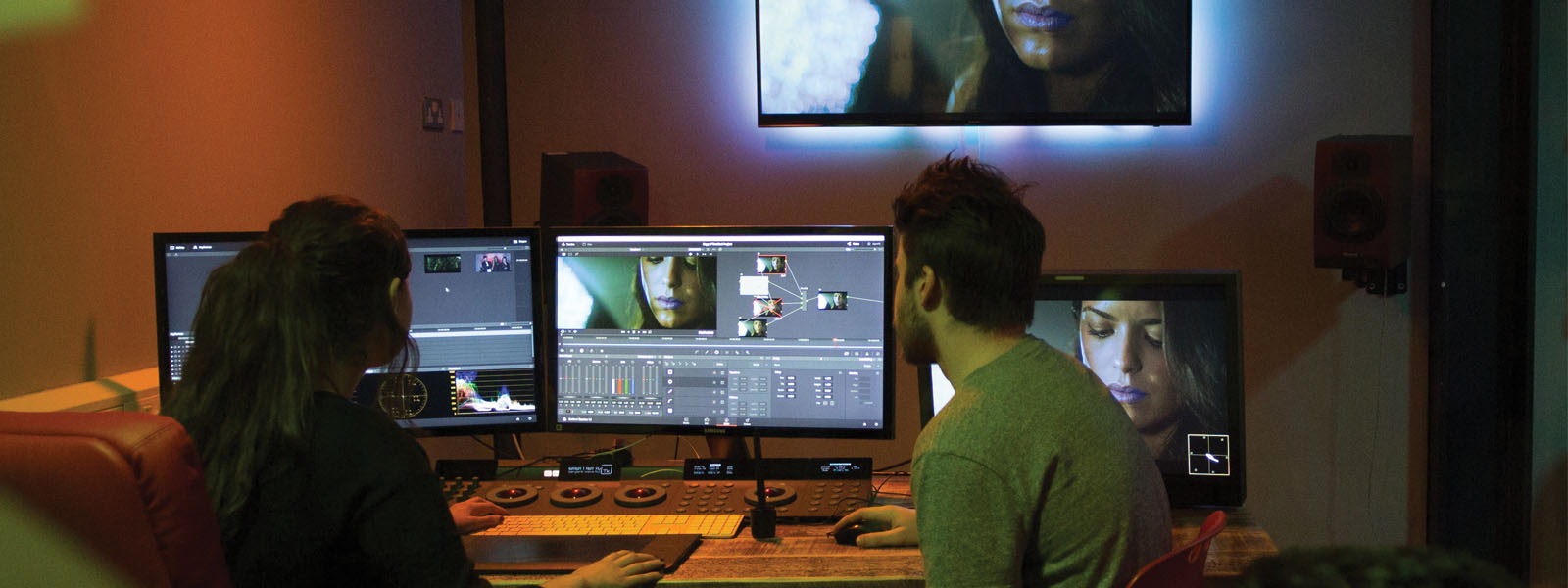Module Overview
Students will have the opportunity to examine the political, commercial and cultural determinants behind the history, current organisation, and potential futures of the UK audiovisual production environment, including how it relates to the US and Europe.
Module Overview
This module is concerned with the cultural construction of womanhood, the 'female' and notions of femininity: the economic and cultural value of the female film star to Hollywood, the development of female film genres or the feminization of certain genres, how debates about female identity inform models of spectatorship, with respect to both psychoanalysis and ethnography.
Module Overview
This module is an advanced level module in the practical screenplay craft, building on skills acquired in Advanced Craft Skills - Screenwriting. Students will explore the conventions of the feature film screenplay, developing story and scenes for a feature script of their own.
Module Overview
This module sets out to explore some of the ways in which we make, sense, and transform ourselves and our worlds through our sonic and auditory cultures. We will focus on a number of important phenomena in our consideration of sonic practices, ways of hearing and contemporary scholarship on the auditory dimensions of media. Designed to engage both Media Studies and Sound and Music Production students in their respective fields, we will move from discussions of sound in relation to the affective capacities of the body through discussion of audition in relation to space and place (focused through the concept of the ‘soundscape’). We will consider discussions of sound and technology and explore concepts and phenomena of ‘noise’ and ‘silence’ in sonic and musical experience. This module encourages collaborative research in the spirit of ‘Student as Producer’, the organizing principle of teaching and learning in the university.
Module Overview
This module investigates and analyses the debates about and developments in children’s film and television in the UK, US and beyond, and is informed by politics, philosophy and ideology.
Module Overview
This module explores the history and theory of the documentary film. It will introduce students to media texts (films, video, broadcast television and digital platforms) that claim, in distinction to the cinema of fiction, to capture and re-present unmediated – to one degree or another-- reality. Students on this module will be asked to consider, via close text analysis and an understanding of moving image history, the problematics of making such a claim. This will involve students investigating the nature of the documentary image – that is: the relationship of the signifier to the thing signified. It will require them to determine the ethical implications of documentary’s claim on the real for the filmmaker, the persons filmed and the spectators. It will engage them in debates about documentary’s impact in the social sphere. The module will be organised around a series of case studies. Students will gain an understanding of media texts that have had a significant impact on society, knowledge of history and theory of documentary, and skills in close text reading and historical reception studies.
Module Overview
A guide to specific films and accompanying theoretical concepts. Key films provide a platform for debating the political, institutional and cultural context of individual cinemas and regions in an increasingly globalised industry where audiences and producers are exposed to a variety of film styles. Critical engagement and debate are encouraged within the broader structure of World Cinema, alongside cultural and globalisation studies.
Module Overview
This module aims to support students’ understanding and use of English language in the context of the media, and thereby enhance their ability to meet the demands of academic study at the University of Lincoln.
Module Overview
The Klagenfurt Erasmus Exchange Programme is an optional module of study for the award of the BA Film & Television degree. As part of the three-year course, some students may study for the duration of Term 1 of Level 2 at the University of Klagenfurt, Austria. The target modules of study include areas of practical and theoretical studies comparable with those of Level 2 study for the Film & Television award at Lincoln.
During the term abroad, Lincoln students will be based in the Institute of Media and Communication Studies and will share classes and modules of study with peers from Austria and other European countries. Not only will students be living and socialising in another culture, providing opportunities to study their respective countries, they will also have an opportunity to engage, free-of-charge, in an intensive German-language module for three weeks before term begins (although academic and practice teaching and learning will be in the medium of English for Lincoln exchange students, except in rare instances when a student may be fluent in German).
Module Overview
The Minnesota State University Moorhead USA Exchange Programme is an optional module for the award of the BA Film and Television Degree. As part of the three-year course, some students may study for the duration of Term 1 of level 2 at Minnesota State University Moorhead USA. The target units of study include areas of practical and theoretical studies comparable with those of Level 2 study for the Film and Television Award at Lincoln.
During the semester abroad, students will share classes and units of study with local students. Not only will students be living and socialising in another 'culture' providing opportunities to study their respective countries, they may also have an opportunity to examine USA media industry practice through optional Internships for exchange students. The Moorhead-Fargo twin cities also offer practical opportunities for students to engage with USA production companies including, Fox, ABC and Prairie Public TV (PBS), all of whom have local bases.
Module Overview
• This module will investigate the Hollywood musical as one of Hollywood’s most popular and important film genres, from its beginnings in the early sound era to the integrated musicals of the 1940s and 1950s, from critically acclaimed box office successes such as West Side Story (1961) and cultural phenomena such as Saturday Night Fever (1977) and Dirty Dancing (1987) to more recent musicals such as Moulin Rouge! (2001), Dreamgirls (2006), La La Land (2016), and Mamma Mia! Here We Go Again (2018).
A close study of a number of significant films and associated scholarly literature will support discussion of structural, stylistic and thematic issues. Stardom and the function of the star performance will be considered and ethnicity, race, sexuality, class and gender as constructed through the musical will be analysed.
Module Overview
The module aims to introduce you to a range of conceptual and theoretical approaches to the study of horror in popular culture. It explores the history of the genre and selected subgenres as well as contemporary manifestations, both supernatural, and realist horror.
The module looks at the horror genre in terms of various social, cultural and national contexts. Students can study psychoanalytical approaches to these fictions as well as approaches such as affect theory which attempt to go beyond psychoanalysis. Through lectures, screenings and discussions, students are encouraged to apply these approaches to the analysis of selected media texts and subgenres.
Module Overview
This module aims to encourage students to consider the options open to them upon graduation and prepare for life after university. Students have the opportunity to reach into the wider community to develop their skills for future employment. The module aims to enable students to closely examine how a range of film production companies function on a day to day basis and relate their experience to their studies.
Module Overview
This module is an advanced level module in the practical screenplay craft. Students will produce and pitch finished short screenplays and begin to explore the conventions of the feature film screenplay.
Module Overview
This module enables students to challenge conventions within a large-scale studio project that significantly stretches and challenges their individual and group skillset. The module will see students following through with the experiences from Semester A and put these into practice here.
Students, with the confidence and experience gained at level 4 are asked now to take a stronger creative stand on their work in planning and forming a largescale piece of practice. The key critical skills are used to help build up individual research and development skills, helping to demonstrate the student’s thinking in the employment of their large studio and project-facing role.
Module Overview
This module explores the history of media controversy and ‘moral panic’ during the twentieth century. It is designed to introduce students to media texts (especially films and television programmes) that have sparked debate and extreme differences of opinion among audiences in Britain and America. Students will be expected to engage with a range of films, television programmes and primary source material.
Module Overview
This module aims to develop an understanding of the complex problem of realism in film and media studies as it relates to fictional narrative forms. Students will have the opportunity to engage with academic debates around realist texts and examine these in relation to historical, contemporary and potential examples.
Module Overview
Through a critical examination of contemporary factual television and online culture, this module aims to show that this can be understood as having been dramatically reconfigured in recent years by socio-political and commercial pressures and their associated entertainment values and changing discourses of selfhood.
Module Overview
In this module students will explore how the consumption of televisual content has evolved and been transformed in the era of streaming platforms, catch up TV, interactivity, personalisation, and audience fragmentation.
Module Overview
In the 21st century we no longer believe that a single unified world can be visualized from a privileged position. Any sense of distance from the world has collapsed. We are conscious of living in a time of continual change and transformation as opposed to a state of equilibrium. After all, the early 21st century has been marked by rising urbanism, the movements of people, the crisis of global warming, the dominance of ever more complex logistical networks, the emergence of new cultures of speed, experiments with new modes of warfare, etc. This is a confusing situation – simultaneously liberating, exciting, anarchic and dangerous. We are traversed and overwhelmed by these affective forces. This innovative module, in which students collaborate to produce film essays, presents an opportunity to reassess aesthetic theories and practices – our modes of visualizing - in order to confront the conditions of the present.







